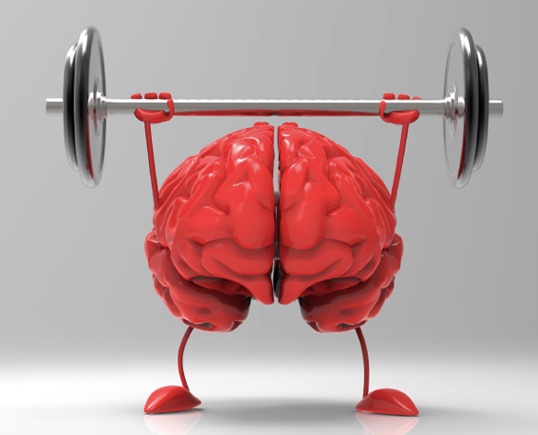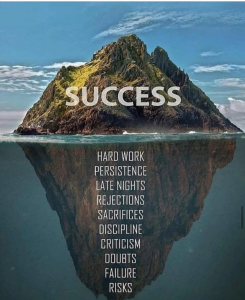Here are my takeaway points from HBR’s 10 must reads: On Mental Toughness – Part 2.
Cognitive fitness is as important as physical fitness. The more cognitively fit you are, better you will be able to make decisions, solve problems and deal with stress and change. Cognitive fitness allows you to be more open to new ideas and alternative perspectives. It will also give you the capacity to change your behavior and forecast outcomes in order to realize your goals.
The brain does not have to diminish with age. With the way of life we choose we can expand our brain. The health of the brain isn’t just the product of negative and positive childhood experiences and genetic inheritance. It reflects your adult choices and experiences as well.
Four steps to become cognitively fit:
1- Understand how experiences make the Brain grow: Experiences and education affect the structure of the brain. Brian processes experiences in order to encode learning and build performance capacity. Other than gaining experience through practice i.e. direct experience, we can gain experience by observation and indirect experience. Mental imagery e.g. trying to recreate the golf pro’s swing through a mental picture – is a valid mode of learning and acquiring new competences.
2- Work hard at play: Another effective way to promote cognitive health is to engage in the serious business of play.
Serious play is
- An individual or group activity that promotes discovery and learning
- or a social activity that promotes emotional and social intelligence,
- or an activity engaged in for enjoyment or recreation.
Play is tied to pleasure and associated with Brian’s reward system which is critical to the social brain. Play engages the prefrontal cortex, nourishing our highest level cognitive functions, that is incentive and reward processing, goal and skill representation, mental imagery, self knowledge and memory, just to name a few. Play therefore improves your ability to reason and understand the world. That is why Einstein said “imagination is more important than knowledge”.
Find the right environment for your brain to thrive in striking a balance between risk and security. Risk alerts the brain and activates capacities for both reason and imagination.
If you do not allow some risk in your life, you may become like an overprotected child who fails to explore the world, with any autonomy and thus never fully achieves his potential. But remember too much risk causes stress which activates the brain’s homeland security system. So we need to find the balance.
3- Search for patterns: Develop your left hemisphere capabilities.
- Challenge your existing mind-set, enlarge it and make it more complex.
- Listen to different viewpoints
- Read new kinds of articles and books, and
- Visit places with a focused set of learning objectives.
All these experiences will expand your vocabulary, your conceptual storehouse and your general perspective. Such immersions will call into question your own mind-set and improve your abilities in pattern recognition.
4- Seek novelty and innovation: The importance of expanding the brain’s capacity to deal with novelty (a capacity typically associated with right hemisphere functioning) becomes particularly obvious when we consider the fact that the right hemisphere deteriorates faster with age than the left. Right hemisphere is the exploratory part of the brain, dedicated to discovery and learning. Any time people look at and experience the world in a novel way, like a kid learning a new language or adult taking up painting, the right hemisphere is exercised. Later the new knowledge migrates to the left, exploitable hemisphere, where it is organized, encoded and made available for day to day retrieval and use.
The more things you learn, the better you become at learning. Actively engaging in novel, challenging activities capitalizes on your capacity for neuroplasticity – the ability of your brain to reorganize itself adaptively and enhance its performance. The people who remain engaged in life, consistently display an attitude of openness to new and unexpected experiences. Having an open attitude is what Buddhist monk refers to the beginner’s mind that is open and allows for both doubt and possibility and that has the ability to see things as fresh and new.
Excellence is not a singular act but a habit. You are what you repeatedly do.
When people feel strong and resilient – physically, mentally, emotionally and spiritually – they perform better with more passion, for longer.












11 thoughts on “Cognitive Fitness”
Comments are closed.